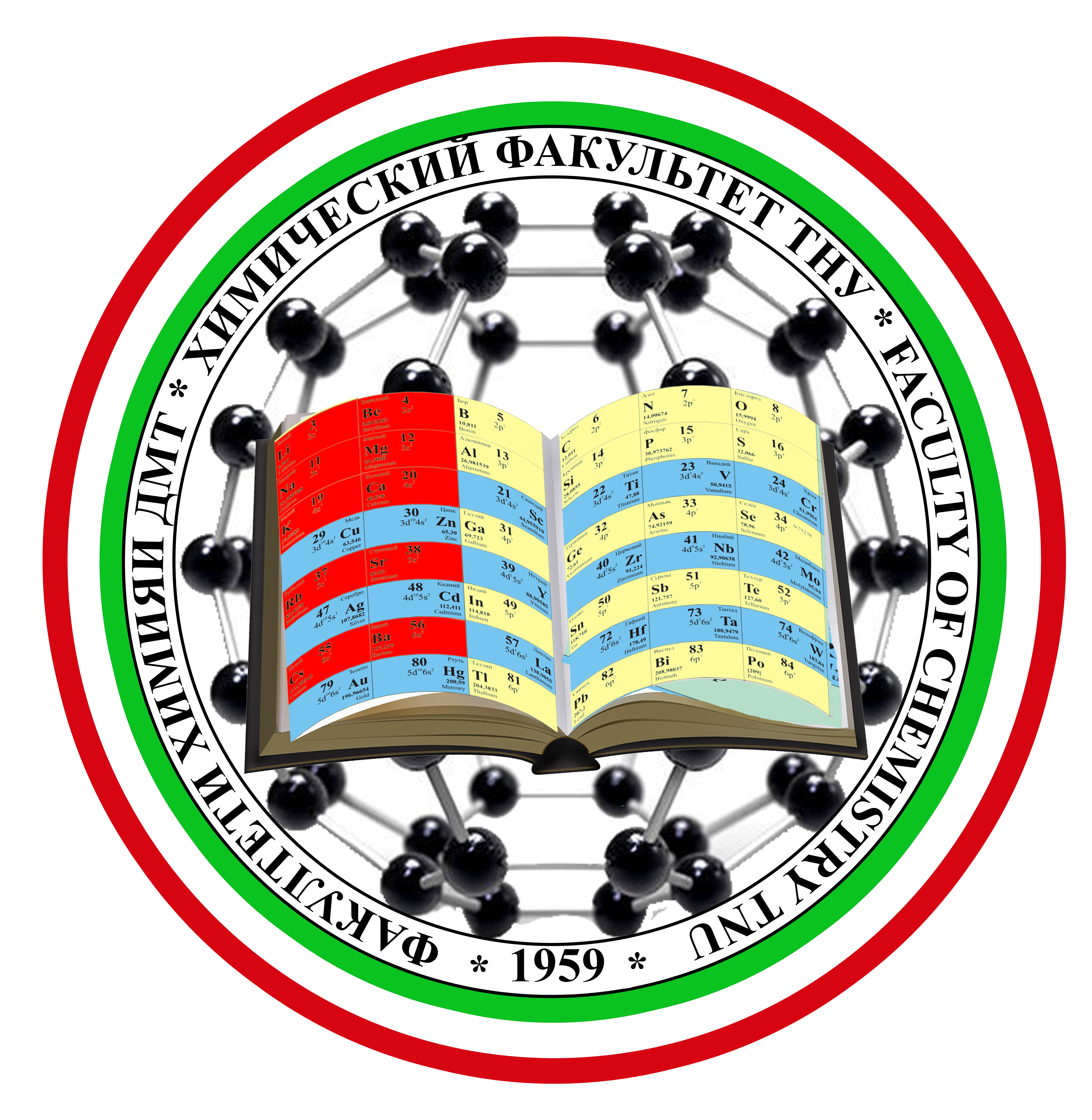Specializations of the faculty
With the opening of the Faculty of Chemistry in 1957, the admission of applicants for the specialty 2018-Chemistry began. In 1962, the first young people graduated from the Faculty of Chemistry. During the ceremony, diplomas were awarded to 22 graduates who were sent to work in chemical laboratories of industrial institutions of the republic, in higher and secondary educational institutions. Admission to the evening department of the faculty began in 1959, and the first graduates in 1965 were three students Lukin L., Sarkisov Yu. A. and Veselago L. From 1959 to 1995. They graduated from the Chemical Faculty of evening studies of V.I. TSU. Lenin 700 specialists.
Then, in 1997, by the decision of the Board of TGNU, instead of the evening department, closed in 1995 due to insecurity and transport problems, admission to the correspondence department in the specialty 011001-applied chemistry was started (now 31050101-applied chemistry).
The contribution of the Leningrad State University named after A.A. Zhdanov (now St. Petersburg State University), Moscow named after M.V. Lomonosov, the State University of Central Asia in Tashkent, the Institute of Chemistry named after V.I. Nikitin AI of the Republic of Tajikistan is invaluable. At the time of the creation of the Faculty, the teaching staff mainly consisted of graduates of Leningrad, Moscow, Tashkent, Saratov State Universities and Institutes of Chemistry of the Russian Academy of Sciences of Tajikistan and the Moscow Institute of Chemical Technology. Currently, 95% of the teaching staff and staff are graduates of the faculty itself.
From the moment of its foundation to the present time, most graduates of the faculty have majored in chemistry (profession: Chemist. Teachers) were trained in institutions of secondary and higher professional education as specialists, and this need has not disappeared today, therefore, in 1969, the Department of Methods of teaching chemistry was organized at the faculty.
With the creation of new departments, a new process took place within the faculty, which made it possible to deepen the course of study in the scientific and scientific-practical direction. The emergence of new specialties with a tendency to engineering and technological directions has created an opportunity to attract teachers, staff and students to applied areas of research and training.
“Analytical Chemistry”, “Physical and colloidal Chemistry”, “Methods of teaching chemistry”, “High molecular compounds and chemical technology” and “Applied Chemistry” have created sufficient conditions for conducting educational, laboratory and research classes. The total area occupied by departments, laboratories and research departments is more than 2000 square meters. Periodically, since 1997, along with the specialty chemistry, other specialties have been formed.
Currently, the faculty trains specialists in 5 specialties at the bachelor’s degree level.
Specialty 31050102-chemistry (profession: Chemist. Teacher). Since 1957, the first admission was started in the specialty 2018-chemistry, graduates with the professions “Chemist-Teacher” depending on the graduation of departments at the faculty, i.e. “Chemist-Teacher Organic” until 1986. From 1986 to 1995, this specialty changed its number to 0108-Chemistry and these professions began to be used as entrepreneurs. In 1995-2006, its number was changed to 011000-chemistry, and specialists only with the profession “Chemist. “Teacher” became an entrepreneur, in 2006-2009 with the number 02040300-chemistry, and from 2009 to the present, specialty 31050102-chemistry (scientific and pedagogical activity) with the profession of chemist, teacher, from the period of the creation of the faculty until 2018-2019, except 2001-2003, graduates were awarded the degree of specialist. Since 2018-2019, graduates of all specialties continue to receive a bachelor’s degree. Since its inception, except for 1995-1997, this specialty has been teaching students at evening and correspondence departments for all years. Since 2000, this specialty has been licensed to promote the activities and admission of bachelors at the master’s level.
Specialty 31050101-applied chemistry (profession: chemist. researcher). Admission of students to this specialty began in 1997 for full-time and part-time departments and continues to this day. At first, the qualification 011001-applied chemistry with the profession “Chemist” was awarded in this specialty. “Engineer” until 2010, then until 2014. 02040600-applied chemistry, specialty “Chemist. Engineer” until 2014-2015, from the 2015-2016 academic year, this specialty was completed in this way 31050101-applied chemistry (with the profession “Chemist. Researcher””) finish.
Specialty 48010100-chemical technology of inorganic substances, materials and products (profession: Chemical engineer-technologist) has been working since 2002, at first this specialty was code 011002-chemistry and technology of non-ferrous metals with the profession “Chemist-Technologist” until 2014 and from the 2014-2015 academic year until now 48010100 — chemical technology of inorganic substances, materials and products (specialty: chemical engineer-technologist) graduates. This specialty is valid only on a full-time basis, from the 2019-2020 academic year 6 licensed masters have been accepted to carry out activities at the master’s level.
Specialty 48010300 — chemical technology of natural energy and carbon materials (profession: chemical engineer-technologist) has been working since 2001, at first this specialty No. 250400 is chemical technology of natural energy resources and carbon materials with the profession “chemist. technologist” until 2014 and from the 2014-2015 academic year, i.e. 48010300-chemical technology of natural energy and carbon materials (specialty: chemical engineer-technologist) graduates. This specialty is valid only on a full-time basis, a license has been obtained to promote activities at the master’s level from the 2019-2020 academic year.
Specialty 54010300 — physico-chemical methods and means of product quality control (Profession: Certified Engineer) has been accepting applicants for full-time training since 2013, which continues to this day.
In addition to bachelor’s and master’s degrees, from the 2017-2018 academic year, the faculty began accepting doctoral students for the third level of education, PhD, PhD education and retraining (chemistry), 6D060600-(1)-inorganic chemistry, 6D060600-(04)-physical chemistry, 6D060600-(06)-chemistry of high molecular compounds, 6D060600-03-organic chemistry, 6D072000-chemical technology of inorganic substances, 6D072100-chemical technology of organic substances, 6D073700- Mineral processing and 6D073900-Petrochemistry train specialists. The teaching in the faculty’s study groups is conducted in two languages: Tajik and Russian.






